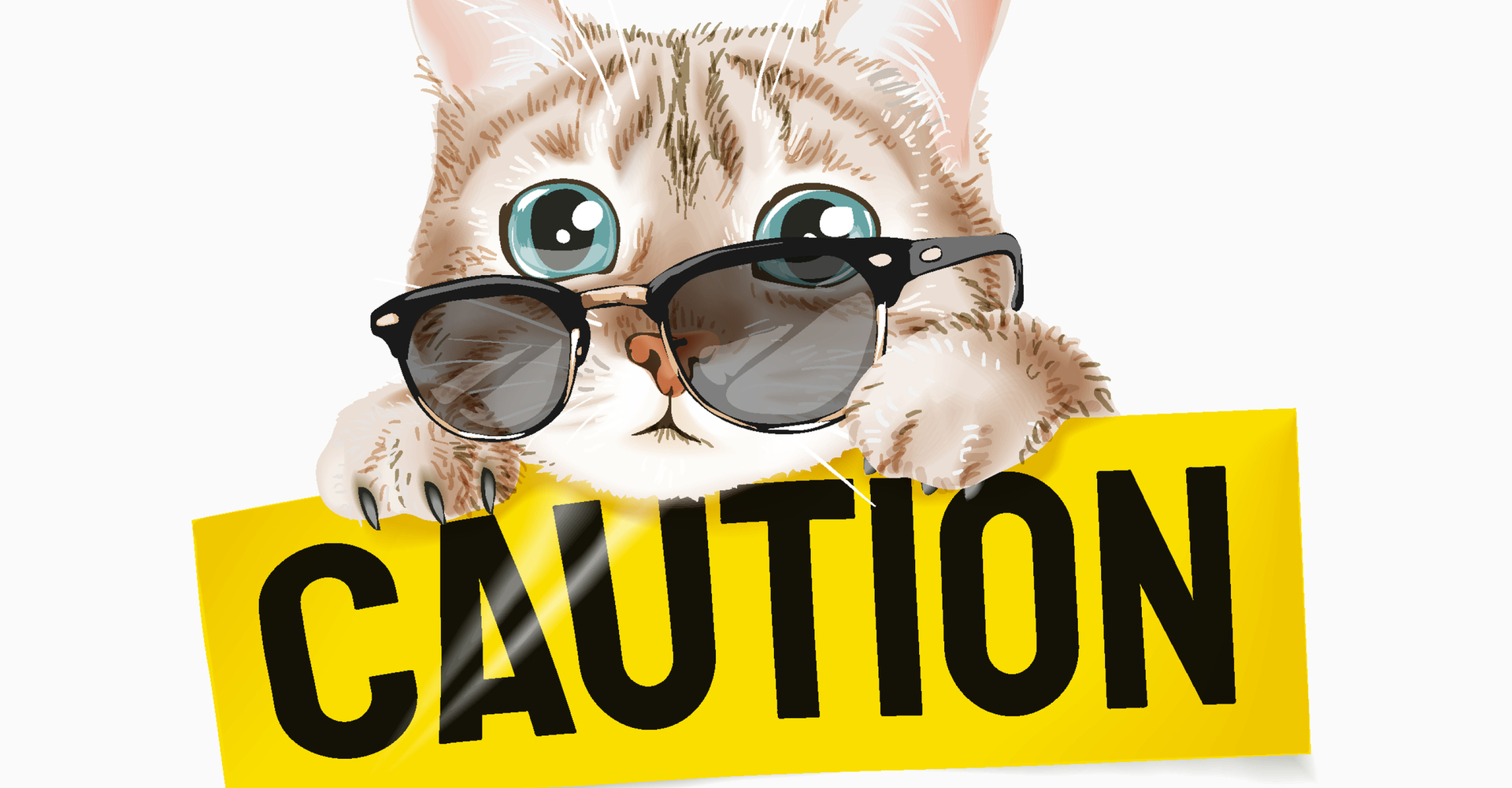CBD for Animals: A Cautionary Note
CBD products are a hot topic in veterinary medicine right now, but it's important to not get ahead of ourselves as professionals with a...
7 min read
 Michele Drake, DVM
:
March 24, 2021 7:00:00 AM PDT
Michele Drake, DVM
:
March 24, 2021 7:00:00 AM PDT

There’s no denying this past year has presented more challenges to the veterinary industry than just about any other in our history. From the clunkiness of curbside service and the pet adoption boom to the massive spike in call volume and the shortage of people who were willing to come to work, the hardships we’ve faced have been real but, thankfully, not insurmountable.
When we attended the most recent Viticus Veterinary Summit, my team noticed that the comments from many veterinary employees indicated high burnout and low morale. Many people also noted the difficulty in establishing and maintaining a positive culture and work environment, particularly in the face of the pandemic.
While we’re certainly not perfect at The Drake Center for Veterinary Care, I’m proud to say that we’ve worked hard to build a strong culture, and as a result, our team’s morale has remained high, and we haven’t experienced much burnout. So, I thought I’d share my perspective on how we’ve ridden the wave, and how we’re emerging stronger on the other side.

The Drake Center for Veterinary Care team on the beach in Encinitas, California. From left: Dr. Jennifer Hamlet with Lulu, Dr. Katie Tiglio, Dr. Michele Drake with Wilbur, Dr. Heather Kovacevich with Rio, Dr. Sarah Dilworth with Scarlet, Dr. Keala Shotwell with Dallas, Dr. Jenny Yan, Dr. Taylor Borsack with Alfie, Dr. Kathy Boehme.
Boosting company morale really starts from the top down. Make sure your leadership team is taking care of themselves, both emotionally and physically. They have to be rested and follow good life practices, as this spills over into the rest of the team. If your leadership team is clearly exhausted and resentful of the time and effort they’re putting in, and they’re not taking time for themselves, this will also spill over, and these bad habits and attitudes will be picked up by other staff.
This is an important discipline point for practice leaders: take responsibility for the fact that your behavior will be modeled by your team. You need to hold yourself to a higher standard of behavior even when times are tough.
Your company mission should also be very clear and well known to your team. Your practice’s core values need to be understood by each team member so that you have alignment; or you’re not going to withstand the challenges presented by the pandemic—or whatever challenge happens next.
If you feel like your practice is lacking in alignment and awareness of your mission, there’s no time like the present to establish and instill these values.
Being aligned greatly reduces stress, which is one of the major contributing factors to burnout.
Fundamentally, burnout happens when people don’t know why they’re doing what they’re doing. When people are fully engaged and committed to the mission, they can achieve the same high level of productivity without the burnout. Often, employees can be floundering and unsure of why they’re working so hard—perhaps without management even realizing it.
As you know, pet ownership increased dramatically during the pandemic, and pet owners became more conscious of their pets’ well-being. This has of course led to a huge increase in traffic to veterinary hospitals. At The Drake Center, we’ve grown twenty percent over the past year. It’s been incredibly busy and challenging—but it didn’t create burnout because the growth was consistent with our mission to care for every companion animal in our community. Because our team is fully aligned with this mission, they recognized that the busy-ness in the practice wasn’t accidental, it was purpose-driven. So, they stepped up, worked together, and found solutions to handle all the new patients.
I know that some veterinary practices opted not to grow despite the opportunities to do so. But I firmly believe that I’m here to serve the community. We went ahead and accepted more clients despite being very limited by our building size. We increased our staff to handle the new clients and managed to carve out the time to train these new employees. And despite the time crunch, I still sit down with each and every new employee to make sure they understand our core values and our mission, because having everyone on the same page is why we’ve managed to do as well as we have.
Of course, my employees have experienced stress due to the higher traffic, but I haven’t had anyone take extra sick days or experience burnout, and I think that’s because they know why they’re there. Having a bigger vision helps you ignore the small, everyday annoyances. Encourage your team to check their outside stresses at the door, and understand that fussing doesn’t help anyone—yourself included.
The way to establish a positive company culture is to be intentional about your mission and insist that everyone behave in accordance with it. We only hire people who aspire to fit our culture and core values. Of course, not everyone will be perfectly aligned (we’re not robots!), but I’ll take a solid eighty percent.
You should also regularly re-align these core values as you grow, which is something we’re currently working on at The Drake Center. We have our first in-person staff meeting in about two weeks, as we’re all vaccinated (with two medical exceptions), and we’ll be holding the meeting outside while wearing masks. It’s not going to be a quick meeting, as we need to dive into the “state of the union” of our practice and reassess our mission and values. I’ve already told employees to expect this meeting to take a full two hours. I’m also meeting with my leadership team beforehand to ensure that we’re in alignment with what we’re presenting to the staff. While our core values have been stable for a long time, things may have evolved a bit, especially as we’ve been navigating the COVID crisis.
I’ve had the privilege to deliver culture workshops to many practices nationwide, both in person and through our GeniusVets technology platform. When I meet with practice leaders, I explain that health and emotional intelligence are vital to their overall success—but in addition, they need a willingness to create and maintain healthy boundaries.
Practice owners should never let staff or clients threaten their core values, boundaries, and mission. If you leave even one person in the mix that isn’t aligned with your mission, your success is threatened. It might sound cutthroat, but if someone in the practice refuses to get on board with the mission, that person has to go—in order to maintain the balance within your practice and for you all to achieve your goals. One thing I’ve heard many practice owners say is that they’re “too nice” to remove a problem employee. The truth is, it’s not “mean” to terminate an employee if they’re negative or toxic—in fact, the “mean” thing to do is to keep them there, making the rest of the team miserable!
We made sure during this time to let our employees know how much they mean to us:
Where other people have lost their jobs or are part of a shaky company culture, our employees have always known that they—and their jobs—are safe and secure. This contributes tremendously to their level of engagement because they truly know they are valued.
Clients have understandably grown more impatient, frustrated, and, quite frankly, snippy during this period; but that’s only helped us as a practice to establish better boundaries. While of course we need clients for our practice to thrive, we never allow clients to berate our staff.
We fully understand that clients are “up against it” right now, just as we are. We are understanding and flexible, but we also adhere to boundaries. I don’t want my employees to ever feel they’re required to endure abuse. My manager has been with me for a long time, and she’s particularly skilled at taking flustered clients aside and sorting out the situation. Our doctors also go out of our way to support each other. Communication has been challenging for the past year, but we managed to keep both employees and clients abreast of all the changes that were being made via emails, our website, videos, and other forms of communication.
One of our achievements during this pandemic that I’m most proud of is that we were able to see other DVMs’ clients that they were turning away. A national chain down the street from us closed down. Other independent DVMs simply wouldn’t take new pets. Even emergency veterinarians have been turning away clients in dire situations. Meanwhile, we figured out ways to treat those pets despite our minimal space and tight schedule. Whether it was a matter of hiring more people or paying overtime, we knew we had to get it done.
So many DVMs are selling their practices because of burnout, and this is unfortunate. There’s nothing inherently wrong with selling your practice, but you should do it on your own terms—not because you’re burned out, as this will not get you a quality acquirer or a great valuation.
In many cases, the core issue is just that the owner hasn’t taken the time to establish a strong company culture. This isn’t rocket science, but it does take some energy and commitment. The good news is there are tons of resources out there to help you hone your leadership and culture development abilities. Watch videos. Study books. Cultivate the ability to create boundaries in your life—not just at work but in your personal life as well. This will help you maintain balance and support your own personal happiness. I’m not great at it, but I’m continuously striving to do better.
Having worked with many practices around the country, I know that any practice owner who is willing to put in the work can create a culture they will be truly proud of. It’s not complex, but it does require commitment and consistency.
It begins with making the decision that a strong practice culture is important to you and that you will invest your time and energy to create it. Once you’ve made that decision, bring your leadership team on board, fine-tune your alignment on your mission and core values, and get their commitment to helping you put the program in place. Then make this announcement and commitment to your staff, and continue reinforcing your culture through your daily activities.

Just like building a muscle, it may be a little awkward at first. But in time, you’ll get stronger and stronger at it, and ultimately you’ll have a powerful culture that will help your team thrive in any environment, no matter how challenging!
I provide a free culture workshop through GeniusVets that is a great place to start. In addition, two books I recommend on employee hiring, retention, and growth are Traction: How Any Startup Can Achieve Explosive Customer Growth and I Quit But Forgot To Tell You (on how to prevent and remedy employee disengagement).
Check out courses coming up in 2021 WVC Academy, taught by experts in state-of-the-art lab facilities!
Content may contain advertising and sponsorships. Guest writers, advertisers, and sponsors are responsible for ensuring that material submitted for inclusion is accurate and complies with applicable laws. We are not responsible for the illegality of any error, inaccuracy, or problem in the guest writer's, advertiser’s, or sponsor’s materials.
Advertising material and/or opinions are not a reflection on Viticus Group.

CBD products are a hot topic in veterinary medicine right now, but it's important to not get ahead of ourselves as professionals with a...

Viticus Group held an insightful online event on April 14 featuring a top veterinary epidemiologist, the former assistant surgeon general, the...

3 min read
Developments and discoveries in veterinary medicine haven't halted during the months of the COVID-19 pandemic. Find out where you can get the latest...